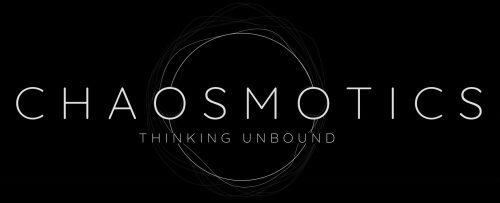Excerpt from the article “Viroid Life. On machines, technics, and evoIution”, in Viroid Life: Perspectives on Nietzsche and the Transhuman Condition, K. Ansell-Pearson, Routledge, London, 1997, pp. 145-150
Philosophies of Difference, particularly through the efforts of Deleuze and Guattari, have offered new perspectives in respect to the question of technology, freeing it from the biologising and anthropologising temptations that have characterised the debate then, and continue to return as protagonists today. Starting from the two French philosophers, in this 1997 text Keith Ansell-Pearson – teacher, among others, of Nick Land – offers a tight and extremely topical critique of the mythologies of technology that have emerged from cybernetics, from the question of post-modernity, and from information capitalism.
________________________________________
In terms of the question of technology, there is no reification of technical machines in the work of Deleuze and Guattari since they readily appreciate that technical machines are only indexes of more complex assemblages that bring into co-evolutionary play material-forces in which the role played by the social machine is decisive. One is not “oppressed” by a technical machine but by a social machine which determines at any given moment what is the usage, extension, and comprehension of technical elements (compare Braudel 1981: 431: “there is no technology in itself”). Technical machines are not an economic category but always refer to a socius or social machine that is distinct from them. This is akin to Marx’s view that machinery is no more an “economic” category than is the ox which draws the plough. Deleuze and Guattari insist that assemblages are never purely techno-logical. Tools always presuppose a “machine”, and the machine is always social “before” it is technical (compare Ellul 1965: 4-5, in which the question of the machine is reduced entirely to a question of mechanized “technique”). As one commentator has noted, in relation to the new cybernetic machines, in no arena will the technologies themselves be determining (Nichols 1988: 45). In other words, questions concerning cybernetic technology can only be adequately attested to when they are articulated in terms of a social theory of the micro-physics of power. One of the reasons given for the primacy of the social machine by Deleuze and Guattari is that technical machines do not contain the conditions for their reproduction, but require the social machine to organize and limit their development. There is no attempt made in their work to crudely biologize the technical-social; both a biological reading of human history and an anthropological reading of natural history must be avoided since the dangers of either strategy are all too obvious. The social is already artificially biologized. The terms of political theory, for example, are terms of capture and regulation, in which the evolution of societies is referred to as “embryonic”, “nascent”, “underdeveloped”, and that of third world societies as “foetuses” and “abortions” of culture and civilization.
In challenging the reified conception of the organism found within a variety of discursive practices one is not advocating a retreat into a pre-social biosphere, but rather presenting a challenge that operates on myriad fronts. A politics of desire – the machinic assemblage of new solidarities and formations – comes into play when it is recognized that technocracy and bureaucracy (the functioning of the social machine) can never be reduced to being simply the operation of technical machines along the lines of a perfectly run cybernetic machine. In the 1960s Vaneigem argued that, “by laying the basis for a perfect power structure, the cyberneticians only stimulate the perfection of its refusal. Their programming of techniques will be shattered by the same techniques turned to its own use by another kind of organization” (Vaneiger 1994a: 85). In truth, the situation is now infinitely more complex than the likes of Vaneigem could ever have entertained, since the “outside” – virtual futures of all kinds – has been captured. Capitalism, having embarked upon a programme of endocolonization, has become a futures market on every level one cares to think “Nothing is true; everything is permitted” is no longer the slogan of the revolutionary nihilist but that of established powers of capture. The revolution will be televised (and already has been). This is the force, for example, behind Umberto Eco’s astute insight into (post)modern terrorism: terrorism is not the enemy of the great systems but their natural counterweight, both accepted and programmed (Eco 1986: 116). If the great systems function as headless systems, having no protagonists and not living on individual egoism, then they cannot be struck by killing the king: “if there exists a completely automated factory, it will not be upset by the death of the owner but rather by erroneous bits of information inserted here and there, making hard work for the computers that run the place” (ibid.: 115). It is no longer sufficient to ponder Marx, he suggests; one must also ponder Norbert Wiener! Capital renders Marx’s great insight into history null and void: the history of all hitherto existing society is the history of class struggle except for the “history” of (late, always late) capital! Forever the great cynic, capital cannibalizes all negativity, “parodistically going beyond its own contradictions” (Baudrillard 1994: 52).

Technology’s powerful illusion of independence is part of its immense entropic and imperialistic success: the essence of technology is nothing technological, but it appears as if it is1. Fetishism of technology is an essential – and ritual – part of capital’s transcendental illusion. But the social definition of what is technologically feasible or desirable is not external to technology but intrinsic to it. A distinction between the “economic” and the “technological” is arbitrary and unintelligent (see Hornborg 1992). Capitalism rests on a particular con junction of technical and social machines. As a distinct social formation it functions by turning the technical machines into constant capital attached to the body of the socius (as opposed to “human machines”, which are made adjacent to the technical machines). The social axiomatic extends its limits through the “non-technical” means of administration and inscription. Culture works as a mechanism of selection, inventing through inscription and coding the large numbers – organisms and complete whole persons – in whose interests it acts. This explains why “statistics is not functional but structural”, concerning “chains of phenomena that selection has already placed in a state of partial dependence…This can even be seen in the genetic code” (Deleuze and Guattari 1983: 343). The State exists to regulate the decoded flows unleashed by the schizzo-tendencies of capitalism. While capital melts down everything that is solid and profanes all that is holy, bourgeois society guarantees that the productive forces of change are rendered equilibrial through the territorially fixed and juridically invariant structure of the modern State (Balakrishnan 1995: 56-7) (and news of its death is premature). Moreover, through State regulation and control the decoding practices of science and technics are subjected to a social axiomatic that is more severe than any putative “scientific” axiomatic. The social and cultural revolution of postmodernity is about the potential liberation of technical machines from monopolistic and scientistic control by the molar forces of capture that characterize the modern capitalist State, a bifurcation point at which capitalism is no longer able to monopolize for itself technical machines as the constant capital attached to its social body. The critical task of an alien thought-praxis, therefore, can only be that of decoding and deterritorializing the prevailing administrative and regulatory machines – in the State, in philosophy, in science, in culture and information – that have defined and restricted the present by despotically blocking the free flow of energy and knowledge throughout the social machine.
Grand narratives, it would seem, are coming back in fashion, and with a vengeance, assuming a distinctly inhuman character, in which we are offered a plethora of apocalyptic scenarios concerning an alleged phase-space transition to a new, “higher” level of evolution based on machine intelligence, resulting in a genetic take-over of carbon life by soft machines (robots and computers) (for two accounts of our neg-entropic destiny from vastly different thinkers, see Lyotard 1991 and Tipler 1995). But this depiction of neg-entropic destinies, in which the human plays the role of a mere conduit in the inhuman process of complexification, can only provide simple options that are not options at all, such as a retreat into a new ethical purism (mourning the event, bearing testimony to the Event), futile Ludditism, or vacuous cyber-celebrationism. The dangers in conflating biology and technology are immense. Today paleoanthropologists speak of life on earth taking place in terms of the evolution of techno-organic life that has cultivated positive feedback loops between “intelligence” and biology resulting in an accelerated evolution, with the increasing hegemony of artificial life over natural life being understood as a Lamarckian invasion and take-over of so-called dumb and blind Darwinian natural selection (see Schick and Toth 1993: 315-16).
A new mythology of the machine is emerging and finds expression in current claims that technology is simply the pursuit of life by means other than life2. This dubious neo-Lamarckism, which reaches an apogee in Kevin Kelly’s assertion that the advantages of a Lamarckian style of evolution are so great that nature herself has found ways to make such an evolution possible, is not only philosophical idiocy but also politically naive, resting on a highly vertical and perfectionist model of biotechnical evolution. He constantly speaks of “what evolution really wants”, as if one could easily speak of “evolution” in terms of a global entity, as in the following gross assertion: “Evolution daily scrutinizes the world not just for fitter organisms, but to find ways to increase its own ability [. . .]. Evolution searches the surface of the planet to find ways to speed itself up, to make itself more nimble, more evolvable – not because it is anthropomorphic, but because the speeding up of adaptation is the runaway circuit it rides on” (Kelly 1994: 361). Such “searching” on the part of evolution, we are told, results in the human brain providing the “answer” to the problem of how evolution can gain the complexity necessary in order to peer ahead and “direct evolution’s course”. In the process of this ridiculous anthropomorphism questions concerning the utilizations and abuses of life and bioengineering for life are rendered completely uninteresting, since, as Bergson would have put it, “all is given”.

In effect, what is happening in this kind of depiction of evolution is a blind, and dumb, reading of the dynamics of contemporary hyper-colonistic capitalism – Kelly’s identification of speed with simple acceleration illustrates this – back into the mechanics of the biosphere, resulting in a biological justification of entropic modernization in its most imperialistic guise (speed is irresistible)3. There are other reactive forces at play in recent paeans to the rise of machine intelligence. As Baudrillard has pointed out, having lost our metaphysical utopias we now build prophylactic ones in which our immortality is guaranteed (you can download your brain!). If in the past it was the dead who were embalmed for eternity, today it is the living who are being embalmed alive in a state of survival (life owes me a right not to die!) (Baudrillard 1994: 87-8).
At present what we are witnessing within the discernible logic of post-modernity is a transition from the thermodynamic machines of industrial capitalism to the cybernetic machines of contemporary information societies that govern through intelligent control. But this is still a mutation within entropic (post)modernity in which the development of new forces of production outstrips existing relations of production but in no way guarantees their radical transformation or liberation from social control and molarization. Society – and “we” who exist outside – are becoming more like snakes every day. Did the “political” die with the collapse of the great empires, including the great empires of thought (control)? Today the life of the great empires has assumed a retroviral form, fragmented and peripheral, genetically infecting their wastes and by-products, their basic cells and ugly growths, no longer on the order of the political but of the transpolitical whose passion, notes Baudrillard, is that of the interminable work of mourning, lost in the melancholy of homeopathic and homeostatic systems, in which evidence for the death of the political is impermissible since it would reintroduce a fatal virus into the virtual immortality of the transpolitical (Baudrillard 1994: 51). Postmodernity (human, all too human) spreads the virus of voluntary servitude, an “ecological micro-servitude, which is everywhere the successor to totalitarian oppression” (and how green were those Nazi valleys). There is only the contagion of technics and the freedom of becoming imperceptible, invisible, and ignoble (learn to growl, burrow, and distort yourself).
__________________________________________
The publisher has unsuccessfully carried out all necessary searches to identify the rights holders of the work. It therefore remains available to fulfil its obligations.
- This illusion of the autonomous character of technical development is exposed in an instructive “critical” fashion by Habermas (1987: 57f.), who argues that “technology” – conceived as scientifically rationalized control of objectified processes – be taken to refer to a “system” in which research and technology are coupled with feedback from both the economy and from modern social administration. As one of the few attempts to develop a politics of technology and a “democratic” technics, Habermas’s inquiry remains an apposite one in the face of the contemporary depoliticization of questions concerning technology and technics. As Habermas notes, one of the ways in which advanced capitalist society “immunizes itself against the deterritorializing impact of technical change and the potentiality for free communication about the goals of life activity” is through a depoliticization of the mass of the population (120). See also in this regard Winner’s helpful historical study (1977)
- Compare Deleuze (1992: 205-6), where he writes: “Life does not imitate the machine, nor is it reduced to a mechanical construct. It is the machine that actually simulates life. . . . Machines were not built in order to free humans from servile tasks. The function of machines is to increase the power of life itself, to enhance life’s capacity for mastery and conquest. The machine does not in any sense replace life.” This so-called postmodern thesis on the machine was captured in its essential import by Samuel Butler in his strikingly titled essay “Darwin among the Machines” of 1863, where he poses the question concerning the machine in quasi-Nietzschean terms, posing it as a question about “the sort of creature” that will succeed man in the supremacy of the earth. His concluding opinion, not surprisingly, was that “war to the death should be instantly proclaimed against them”. See Butler 1914. What perturbs Butler is the recognition that while machines have proved to be an indispensable aspect of human existence – “man’s very soul is due to the machines; it is a machine-made thing”, he writes – in the future hegemonic evolution of machine intelligence the human may prove to be utterly dispensable as far as the desires of the machines are concerned (Butler 1985: 207)
- Of course, the irony of Kelly’s position is that he is a control freak. His opposition to natural selection is based on the fact that it takes time, time he does not have, he tells us “Who can wait a million years?” he writes (359)







